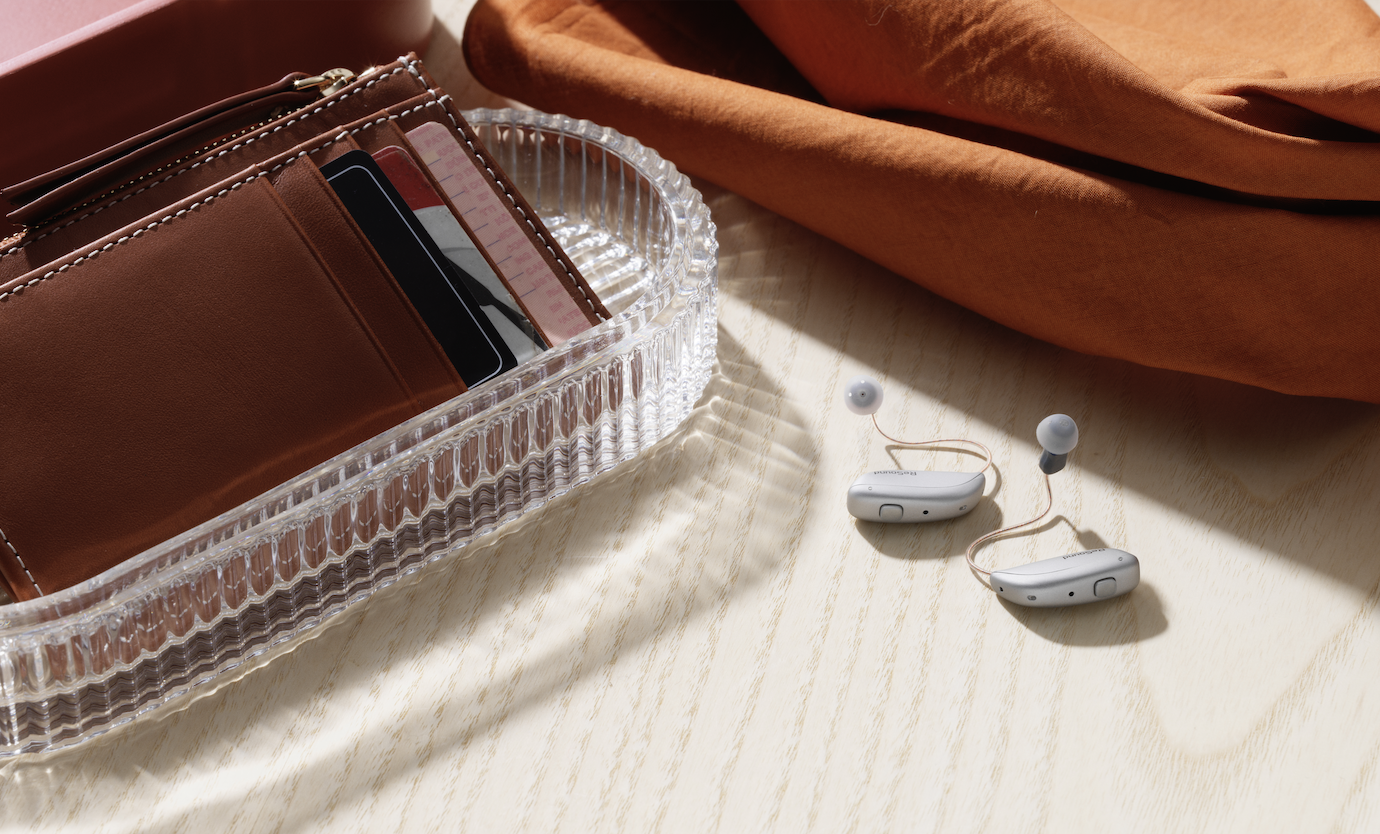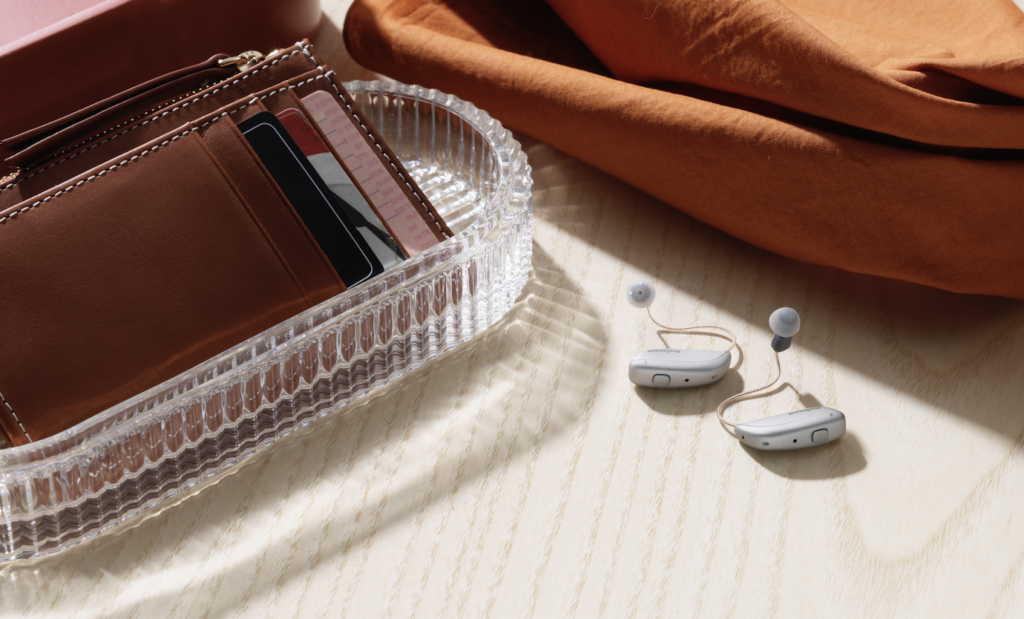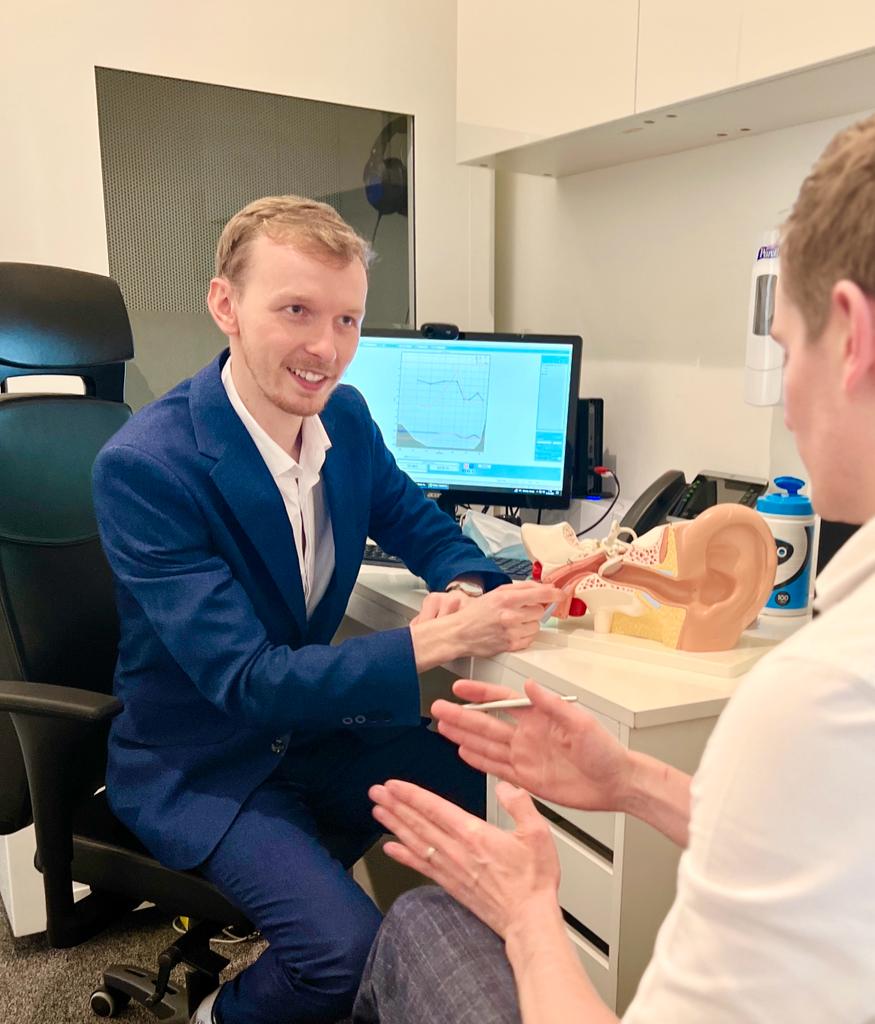
Untreated hearing loss can have a profound impact on cognitive function, and recent studies have shown an alarming correlation between hearing impairment and an increasing risk of dementia.
We’ve previously explored the connection between hearing loss and dementia, explaining how even a mild hearing loss can double the risk of developing dementia. However, we also touched on the potential pivotal role that hearing aids could play in reducing the risk of dementia.
Ahead of the upcoming Dementia Awareness Day (21st January), we wanted to dive deeper into the topic and look into the science behind this relationship, and the cognitive benefits of wearing hearing aids.

Can hearing aids delay dementia?
Researchers are continually uncovering evidence that places hearing loss as a high risk factor for developing dementia, confirmed through various studies. In recent years, they’ve also discovered that the likelihood of developing dementia is lower for those who wear hearing aids.
What the studies say
Study 1
The PROTECT Study, conducted by the University of Exeter and King’s College in London in 2019, was carried out on 25,000 participants aged 50 or over.
The participants were separated into two groups and undertook annual cognitive tests over the course of two years. The results showed that the group who were wearing hearing aids performed better in measures assessing working memory and aspects of attention, compared to those who weren’t wearing hearing aids. The group wearing hearing aids showed faster reaction times which reflected their ability to concentrate better.
PROTECT lead Dr Anne Corbett, from the University of Exeter, said: “Previous research has shown that hearing loss is linked to a loss of brain function, memory and an increased risk of dementia. Our work is one of the largest studies to look at the impact of wearing a hearing aid, and suggests that wearing a hearing aid could actually protect the brain. We now need more research and a clinical trial to test this and perhaps feed into policy to help keep people healthy in later life.”
Study 2
A 2021 study was carried out on 2,114 patients over the age of 50 with a hearing impairment. They found a third who wore hearing aids had not developed dementia five years after their mild cognitive impairment (MCI*) diagnosis.
This figure was only a fifth for those who did not wear hearing aids.
The experts said their findings were an ‘important first step’ to encourage those with hearing loss and at risk of dementia, to wear hearing aids.
Interestingly, the use of hearing aids was linked with a two-year slower conversion to dementia which would have substantial economic and societal effects.
Research shows that the onset of dementia in people with hearing loss could be delayed by up to 5 years if hearing aids are worn.
* MCI affects 5–20% of people over the age of 65. It manifests as problems with memory and thinking that do not interfere significantly with daily life. Individuals diagnosed with MCI are more likely to go on to develop dementia later in life.
The conclusion
Of course, there are more studies on the relationship between hearing aids and dementia than the two mentioned above, and likely many more ongoing. However, what we can clearly see is that hearing aids can have a drastic impact on an individual’s likelihood of developing dementia.
Dr Leah Mursaleen, Head of Clinical Research at Alzheimer’s Research UK, said: “Although the effects of using hearing aids are notoriously difficult to unravel, because researchers cannot be sure if people use them consistently, there is building evidence suggesting that using them can help reduce the impact of hearing loss on dementia risk.”

How can hearing aids reduce the risk of dementia?
Taking into account the above studies, it’s important to note that if you do have hearing loss this doesn’t mean you are destined to develop dementia. Similarly, it doesn’t mean that if you wear hearing aids you won’t develop dementia.
However, the evidence is there that hearing aids can significantly reduce the chances of developing dementia, and delay the onset of it. But, how exactly do hearing aids help?
Hearing aids don’t just address hearing loss, they can also contribute to:
Improved auditory function
The primary function of hearing aids is to amplify and clarify sound, providing individuals with a clearer auditory experience. By restoring the ability to hear and understand speech, hearing aids alleviate the cognitive load placed on the brain. This, in turn, may help preserve cognitive function and reduce the risk of dementia.
Brain stimulation
Research has shown that the more the brain is stimulated, the less likely an individual will develop dementia. Hearing loss significantly reduces cognitive function which impacts the stimulation of the brain. Hearing aids when worn regularly can help to increase cognitive function and therefore keep the brain stimulated.
Improved quality of life
Hearing aids help to improve an individual’s communication skills which plays a crucial role in engaging in social interactions. Reduced social activity has been linked to cognitive decline, and therefore a greater risk of dementia. Hearing aids can be valuable in increasing an individual’s social skills and preserving overall cognitive well-being.
 Taking a proactive step towards reducing your dementia risk
Taking a proactive step towards reducing your dementia risk
Managing hearing loss is the most effective solution to prevent it from worsening over time, and reducing the risk of associated health concerns such as dementia. Even if you don’t think you have any hearing difficulties, it’s still important to get your hearing checked regularly.
Harley Street Hearing offers private hearing tests in London, which include a thorough assessment of your hearing and impartial, independent advice on the most suitable treatment for you. We can provide an extensive range of hearing aids from industry-leading manufacturers and fit you with a tailor-made solution.
Contact us online or call us on 020 7486 1053 to find out more or book an appointment.
Enjoy this article? You might be interested in some of our others:










Recent Comments